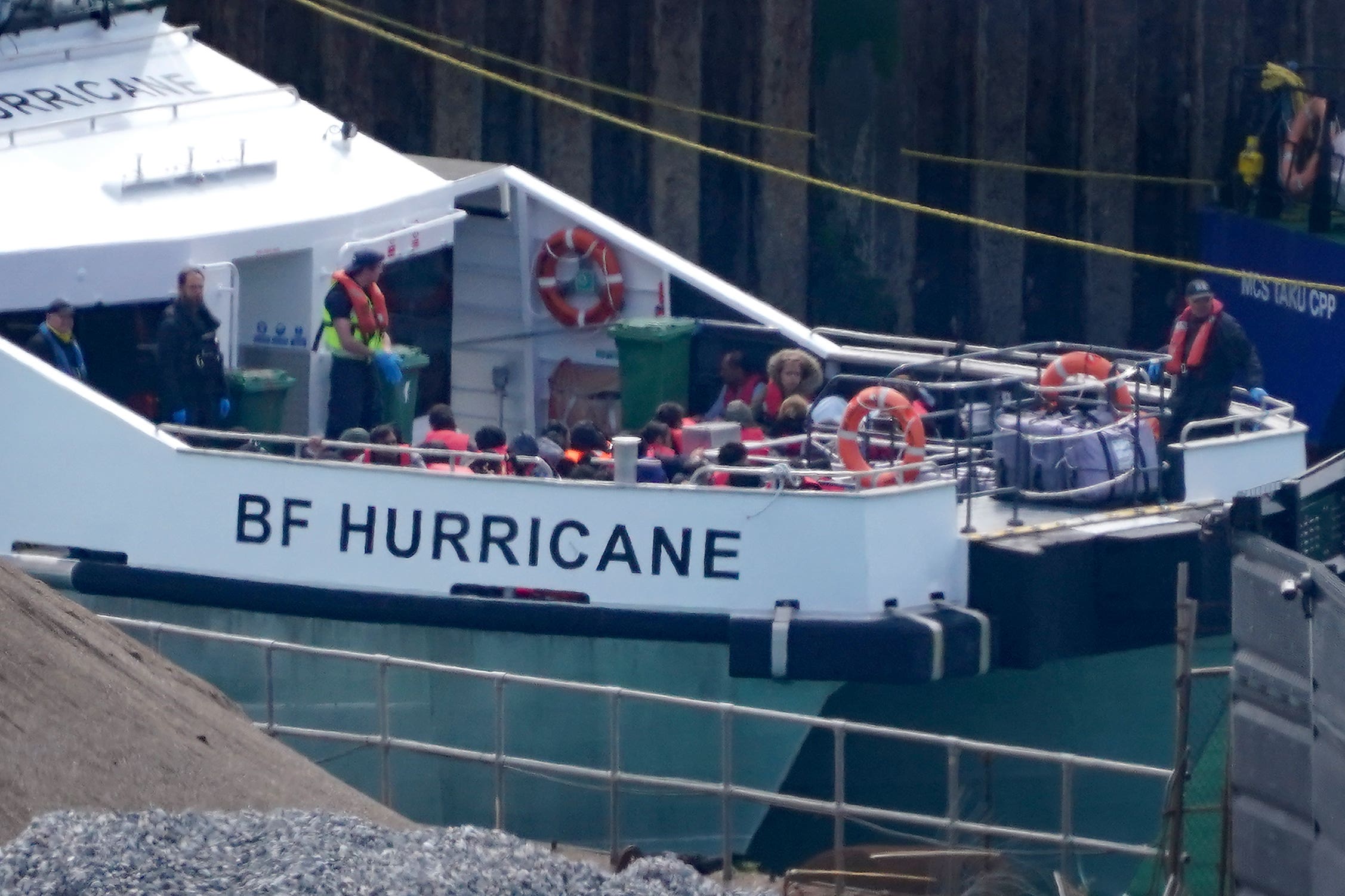Test ‘refugee visa’ to curb Channel crossings, urges charity
The idea is one of a series put forward by the Refugee Council.

Your support helps us to tell the story
From reproductive rights to climate change to Big Tech, The Independent is on the ground when the story is developing. Whether it's investigating the financials of Elon Musk's pro-Trump PAC or producing our latest documentary, 'The A Word', which shines a light on the American women fighting for reproductive rights, we know how important it is to parse out the facts from the messaging.
At such a critical moment in US history, we need reporters on the ground. Your donation allows us to keep sending journalists to speak to both sides of the story.
The Independent is trusted by Americans across the entire political spectrum. And unlike many other quality news outlets, we choose not to lock Americans out of our reporting and analysis with paywalls. We believe quality journalism should be available to everyone, paid for by those who can afford it.
Your support makes all the difference.Campaigners have called on the Government to test out a “refugee visa” allowing people fleeing war and persecution to travel to the UK to apply for asylum.
The idea is one of a series put forward by the Refugee Council as alternative solutions to curbing Channel crossings.
The charity said its “comprehensive” plan – which it calls the National Refugee Strategy – finds “safe ways” for refugees to reach the UK and upholds the “right for people to apply for asylum on UK soil regardless of how they arrive”, while also suggesting what deals could be struck with the European Union and France.
It came as Channel crossings resumed on Tuesday and continued on Wednesday after poor conditions at sea eased, having stalled arrivals for several days.
The human cost and chaos of the current system have reached shocking levels and we urgently need a new approach
More than 14,500 migrants have arrived in the UK so far this year after making the journey, provisional Home Office figures show.
Meanwhile, plans to move migrants on to the Bibby Stockholm barge in Portland, Dorset, have reportedly been delayed again, amid suggestions the first arrivals may now not board until next month.
The Refugee Council’s recommendations to the Government include:
– A pilot of a refugee visa which allows people to travel to the UK to apply for asylum.
– Giving children a chance to join relatives in the UK and tackling “financial constraints and other barriers that hinder family reunion”.
– Allowing people with relatives already in the UK to travel from EU member states.
– Giving the right to work to asylum seekers who have been waiting longer than six months for a decision on their claim.
The charity’s chief executive Enver Solomon said: “The human cost and chaos of the current system have reached shocking levels and we urgently need a new approach.
“The proposals we set out would go some way towards making the smugglers redundant. When there are safer alternatives for people to travel to the UK to begin their refugee application, the number of people arriving in boats will drop significantly.
“By putting in place safe routes, achieving agreements with our French and European neighbours, and treating people fairly and with compassion when they reach our shores, we can establish a very different approach from the inhumanity and disorder the Government is overseeing.”
Those in need of protection should claim asylum in the first safe country they reach rather than risking their lives or paying people smugglers to arrive illegally in the UK
The charity called on the Government to launch a year-long pilot of a refugee visa – similar to schemes used for Ukrainians fleeing conflict – at an estimated cost of £50.2 million.
The visa would allow people from Afghanistan, Iran, Syria, Eritrea and Sudan to apply for permission to travel to the UK to claim asylum, with officials to issue 10,000 visas while the trial is carried out.
The plan focuses on some of the most common nationalities to cross the Channel which also have high grant rates of asylum in the UK.
Applicants would need to have left their home country before requesting a visa and they would be allowed to submit applications online or at centres set up in neighbouring countries to the one they are fleeing.
Basic security and nationality checks would be carried out, with other forms of documentation accepted if the applicant did not have a passport, according to the charity.
It called for decisions to take no more than three days and for travel to be arranged once a visa is issued, like in similar resettlement schemes.
If someone is refused asylum they could be returned to their home country.
A Home Office spokeswoman said: “Our priority is to stop the boats. Those in need of protection should claim asylum in the first safe country they reach rather than risking their lives or paying people smugglers to arrive illegally in the UK.
“The UK has a strong track record of providing protection to those who genuinely need it and we are committed to exploring new safe and legal routes, but we must first grip the rise in illegal migration. Our Illegal Migration Act is a key part of our work to deter people from making unnecessary journeys to the UK.
“We are also taking action to ensure all asylum claims are considered without unnecessary delay and remain on track to clear the ‘legacy’ asylum backlog by the end of the year.”